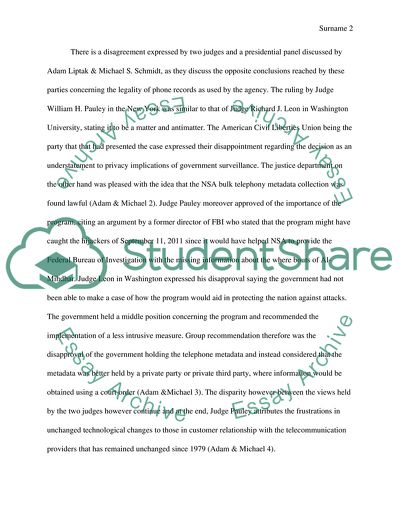Cite this document
(National Security Agency Case Study Example | Topics and Well Written Essays - 1500 words - 1, n.d.)
National Security Agency Case Study Example | Topics and Well Written Essays - 1500 words - 1. https://studentshare.org/law/1861718-national-security-agency-nsa
National Security Agency Case Study Example | Topics and Well Written Essays - 1500 words - 1. https://studentshare.org/law/1861718-national-security-agency-nsa
(National Security Agency Case Study Example | Topics and Well Written Essays - 1500 Words - 1)
National Security Agency Case Study Example | Topics and Well Written Essays - 1500 Words - 1. https://studentshare.org/law/1861718-national-security-agency-nsa.
National Security Agency Case Study Example | Topics and Well Written Essays - 1500 Words - 1. https://studentshare.org/law/1861718-national-security-agency-nsa.
“National Security Agency Case Study Example | Topics and Well Written Essays - 1500 Words - 1”. https://studentshare.org/law/1861718-national-security-agency-nsa.


